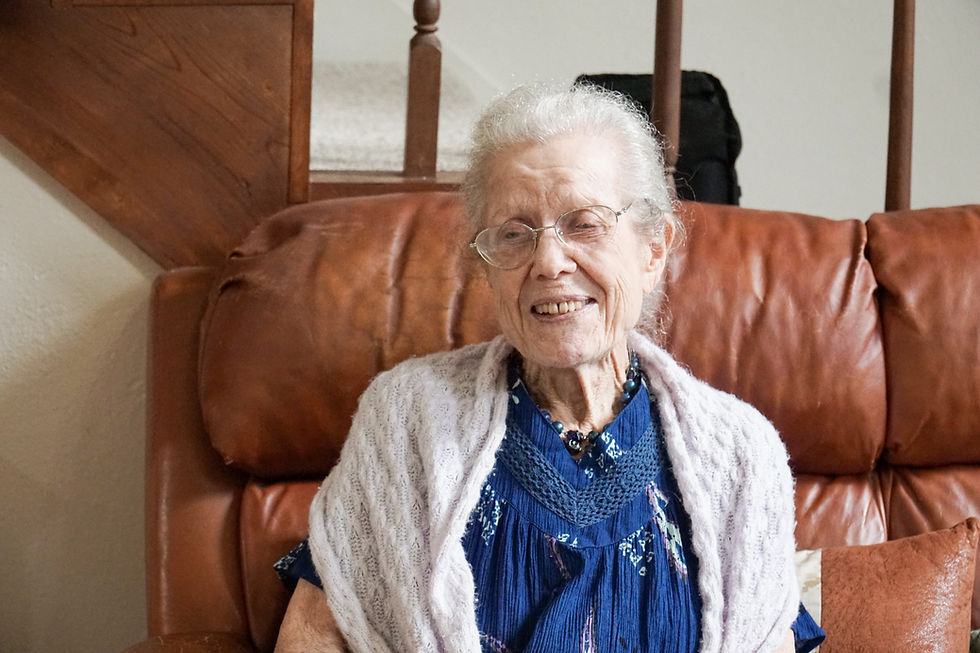Caring for Older Adults: Navigating Transitions Between Levels of Care
- Lauren Fallat, LPC LPAT ATR-BC

- Jul 17, 2025
- 3 min read

Caring for Older Adults
As older adults face evolving health and mobility needs, they may transition through multiple levels of care—from independent living to assisted living, rehabilitation, or skilled nursing care. Each move carries its own set of emotional and practical challenges, often layered with personal history, family dynamics, and varying degrees of readiness. These transitions not only demand logistical coordination but also call for deep empathy and a commitment to preserving the individual’s dignity and voice. This blog explores how those caring for older adults can them through these shifts with compassion, clarity, and respect for their lived experiences.
Effects of Transitions and Changes
Transitions between care settings can be profoundly disorienting. They frequently happen in the wake of acute medical events, such as falls, surgeries, or sudden cognitive decline, leaving individuals and families with little time to prepare. In these moments, the older adult may feel a loss of control, fear about what lies ahead, or even shame related to perceived dependency. Planning ahead, engaging in early conversations, and having contingency strategies in place can significantly reduce the emotional toll and help foster a sense of empowerment amid uncertainty.
How to Help
Effective communication is the cornerstone of smooth transitions. It is vital that older adults are kept informed, consulted, and heard throughout the decision-making process. Transparent explanations about why a move is necessary, what will happen, and how their needs will be met can lessen resistance and promote cooperation. Using language that is respectful and strengths-based—highlighting how a change may enhance their comfort or well-being—can foster trust and reduce feelings of helplessness.
Each level of care comes with unique offerings and limitations. Independent living supports a mostly self-sufficient lifestyle with access to amenities and community engagement. Assisted living provides help with daily activities and health oversight while preserving as much independence as possible. Skilled nursing facilities are more clinical, providing comprehensive care for those with complex medical conditions, while memory care offers specialized support for individuals with dementia or Alzheimer’s. Educating families and individuals about these distinctions enables informed decisions and helps align expectations with reality.
The Importance of Continuity of Care
Continuity of care is another crucial aspect that can make or break the quality of a transition. Transferring up-to-date medical histories, medication regimens, and care preferences ensures a smoother handoff and prevents gaps that could lead to complications. Providers who work collaboratively across systems—communicating with families and one another—help ensure that older adults experience consistent, coordinated care that addresses both their physical and emotional needs.
Amid the logistical planning, emotional care must not be neglected. These moves can trigger a complex mix of grief, confusion, anger, and vulnerability. Acknowledging these emotions rather than minimizing them allows the older adult to feel seen and validated. Giving them time to adjust, maintaining familiar routines, and offering comfort through personal items or rituals can help ground them in the new environment.
Family members often become informal case managers, juggling appointments, paperwork, advocacy, and emotional support. While this can be rewarding, it is also taxing. Families benefit immensely from leaning on professionals such as elder care coordinators, geriatric social workers, and support organizations who can offer guidance, respite, and clarity during decision-making.
How Mental Health Professionals can Help
Mental health professionals can play a pivotal role during these transitions. Therapists and counselors can help older adults confront fears of dependence, reframe feelings of loss, and explore new sources of meaning and identity in changing environments. Group therapy or peer support groups can also be particularly effective, creating spaces for mutual understanding and shared growth.
Although care transitions are often inevitable, they need not be traumatic. With intentional planning, honest communication, comprehensive emotional and medical support, and a deep respect for the person’s values and life story, these shifts can become opportunities for healing, safety, and renewed connection. Every transition offers a chance to affirm that aging, even with its changes, can be accompanied by dignity, purpose, and continued personal growth.
To Schedule an Appointment for Counseling or Art Therapy
To Schedule an appointment, please click here.
To learn more about Holistic Health Counseling Center, please visit our website at www.hhccnj.com
To learn more about Art Therapy, please visit our Art Therapy website at: https://www.arttherapynj.com/
If you or someone you know is suffering with Tinnitus, please visit our website for more information about how we can help at:


